Caring for Your Aquarium & Fish in Summer – Essential Guide
Keep your aquarium and fish safe this summer with expert tips on temperature control, oxygen levels, filtration, feeding, and maintaining water quality.
Table of Contents
- Optimal Water Temperature
- Regular Water Changes
- Provide Proper Filtration
- Avoid Overfeeding
- Maintain Aquarium Cleanliness
- Control Sunlight Exposure
- Regulate Water Oxygen Levels
- Safeguard Fish from Stress
- Prepare for Power Outages
- Check Your Fish's Health
- Faq
- Conclusion
Caring for an aquarium in the hot summer season involves a little more effort to ensure your fish and the water conditions are healthy. Heat, water quality changes, and possible stress causes can influence the health of your aquarium and fish. The following is a step-by-step guide on how to care for your aquarium and fish in the summer.
Optimal Water Temperature
Ideal Temperature Range: The majority of freshwater and saltwater fish prefer a stable temperature range of 75-80°F (24-27°C). In the summer, temperatures can become much higher, particularly if the room where the aquarium is located becomes hot.

Use a Thermometer: Purchase a good-quality aquarium thermometer to monitor the water temperature continuously.

Aquarium Heater: In summer also, an aquarium heater can come in handy for a stable temperature, particularly at early mornings or cooler nights. Set it at the optimal temperature depending on your fish species.
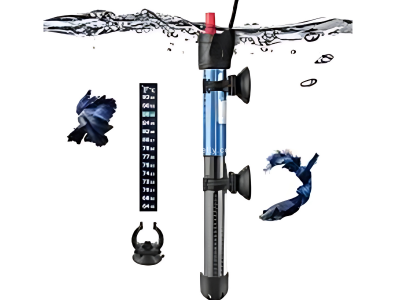
Cooling Fans: If temperatures exceed the optimum range, aquarium cooling fans are used to force air over the water surface so that evaporation is enhanced, and the temperature is reduced.
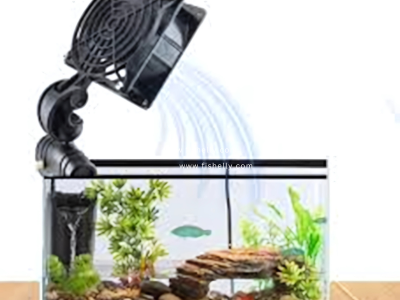
Aquarium Chillers: For bigger or more delicate tanks, an aquarium chiller can be a worthwhile investment. These chillers cool the water to a more comfortable temperature for your fish.

Regular Water Changes
Frequency: Summer heat can make water quality degrade faster, so regular water changes are a must. Try to change 20-30% of the water weekly.

Monitor Water Parameters: Regularly monitor for water quality changes, such as ammonia, nitrate, nitrite, and pH. Warmer weather promotes algae growth and more waste.

Use a Water Conditioner: Treat tap water with a water conditioner prior to adding it to your aquarium. This dechlorinates the water, removes chloramine, and eliminates heavy metals toxic to fish.
Provide Proper Filtration
Increase Filtration Capacity: Hot weather makes fish more active, which results in a greater amount of waste. This places additional stress on your filtration system. Ensure your filter is sufficient for the tank size.
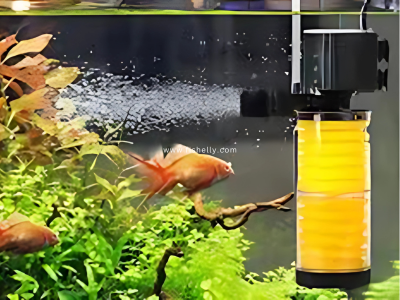
Clean the Filter Regularly: Clean the filter media whenever necessary to maintain the best performance, but do not clean it excessively since it will interfere with the good bacteria colonies that break down waste.
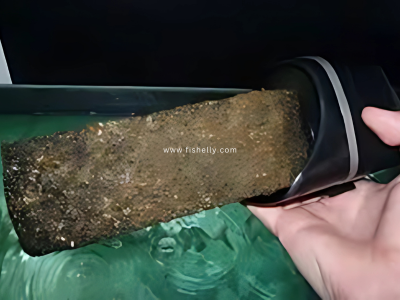
Avoid Overfeeding
Temperature Stress: It can stress fish more during hot weather, and overfeeding them will result in poor water quality and too much waste. Feed the fish sparingly, and dispose of uneaten food within a few minutes.

Summer Diet: Fish metabolism will rise with warmer temperatures. Feed them nutrient-rich foods but avoid overfeeding, which contaminates the water.
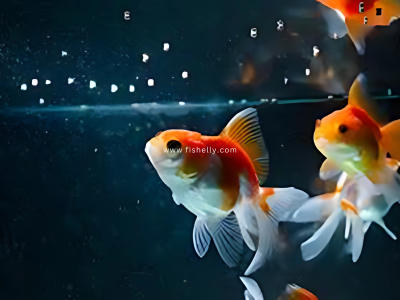
Maintain Aquarium Cleanliness
Algae Growth: The warm summer sun will cause algae growth on the aquarium glass, decorations, and substrate. To control it, clean the glass often with an algae scraper.

Remove Debris: Siphon the substrate to drain out any organic waste or leftover food. Use a gravel vacuum to access areas that are more difficult to clean.

Control Sunlight Exposure
Avoid Direct Sunlight: Direct sunlight can lead to water temperature changes and encourage excessive algae growth. Place your aquarium away from windows or use blinds to restrict sunlight exposure.

Create Shade: If your aquarium is by the window, put a light-obstructing curtain or aquarium top over it to create shade to keep the temperature of the water constant.

Regulate Water Oxygen Levels
Higher Demand for Oxygen: Hot water holds less oxygen, and your fish might find less oxygen stressful under warm weather.

Aeration: Add an air pump, air stone, or surface skimmer to improve oxygen levels. These units assist in enhancing surface agitation, which facilitates oxygen exchange.
Monitor for Fish Stress: Observe fish swimming at the surface or gasping, which can be a sign of oxygen deficiency and a requirement for enhanced aeration.

Safeguard Fish from Stress
Avoid Overcrowding: Tanks that are overcrowded can create more waste and less oxygen for your fish, which stresses them out, particularly during hot weather. Make sure your tank isn't overcrowded.

Observe Behavior: Observe your fish for stress symptoms, including erratic swimming, frantic gill motion, or loss of appetite. Stress is often caused by hot weather, dirty water, or overcrowding.

Prepare for Power Outages
Backup Plan: Summer storms or heat waves may lead to power outages, which can be catastrophic for your aquarium. Keep a backup air pump or battery-powered aerator handy in the event of a power outage.
Invest in a Generator: If you reside in a region with regular power outages, invest in a small generator to run your aquarium's filter and heater in case of an emergency.
Check Your Fish's Health
Watch for Illness: Hot weather can sometimes weaken a fish’s immune system, making them more susceptible to diseases. Keep a close eye on your fish for any signs of illness, such as changes in color, abnormal swimming behavior, or lesions.

Quarantine New Fish: If you’re introducing new fish to your tank, quarantine them first for at least two weeks to prevent introducing diseases into your main aquarium.

FAQ
1. Why does my aquarium water get too warm in summer?
Rising room temperatures and direct sunlight heat the water.
2. What is the ideal water temperature for my fish?
75-80°F (24-27°C) for most fish.
3. How can I cool down my aquarium water?
Use cooling fans, an aquarium chiller, or increase aeration.
4. How often should I change the water?
20-30% weekly to maintain water quality.
5. Why does algae grow faster in summer?
Warmer water and more light promote algae growth.
6. How can I increase oxygen levels?
Use air pumps, air stones, or surface skimmers.
7. Should I feed my fish more in summer?
No, feed small portions and avoid overfeeding.
8. How do I prevent fish stress in hot weather?
Keep stable water conditions, avoid overcrowding, and monitor behavior.
9. What should I do if there's a power outage?
Use a backup air pump or generator for emergencies.
10. Can hot weather make fish sick?
Yes, watch for color changes, unusual behavior, or lesions.
Conclusion
Maintenance of your fish and aquarium for the summer necessitates a diligent eye on water quality, temperature, and fish health in general. If you follow these, you will make sure that the fish stay as healthy and relaxed as possible during the hottest seasons of the year. Be as proactive as can be and be constantly on check with your tank to have the healthiest, most vibrant aquatic environment possible in which your fish can thrive.
Have questions? Drop a comment below! #fishelly_official Fish Community






